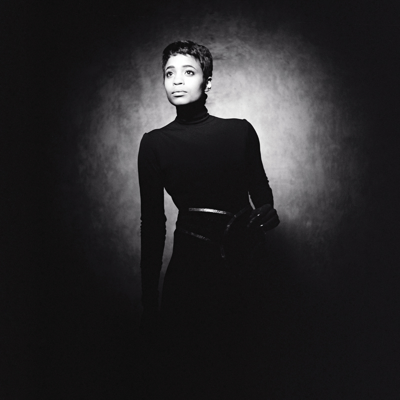While press outlets across the globe rushed to parse the celebration of black womanhood in the unveiling of Beyoncé's dense multimedia piece Lemonade on April 23, Adia Victoria took a more measured approach.
"I'm wary of people being caught up in the pomp and spectacle of it all," Victoria tells the Scene, speaking by phone, "and treating it as if it's not an approachable piece of art — that we can't comment on it in anything but absolute praise. I love Beyoncé. I was raised on Beyoncé. I've grown up with her. But I think that any art needs to be critically examined, and I see universal praise to the point of censorship of any other viewpoint. I'm still digging into it. It's a heavy piece of work. She did the damn thing, and it will take a while for me to get through all of it to a point of full understanding. I'm approaching it optimistically but cautiously."
That response could describe Victoria's own work, in which she embraces her constant evolution as an artist while taking her time to discover exactly what she wants to say. Over three years, she worked around day jobs, school and family life with her band and co-producer Roger Moutenot — a studio veteran whose arm's-length list of credits includes Yo La Tengo, Lou Reed and Those Darlins — to finish her debut album Beyond the Bloodhounds, which is out via Atlantic Records subsidiary Canvasback Music on May 13.
"Going into the studio and recording was kind of a necessary digestion of my life," Victoria says. "It's how I make sense of the world that I'm going through at the time."
The record distills three decades of experiences into distinctive tracks that borrow heavily from blues, jazz and country, as well as experimental takes on pop that recall Portishead and Mutations-era Beck. "Stuck in the South," a gritty blues number that glimmers like fresh asphalt in the summer heat, and "Sea of Sand," a folk-inflected shuffle that shifts its weight like a boxer waiting for the bell, both look at the barriers to self-exploration and self-expression Victoria faced as a young black woman in South Carolina, which were compounded by feelings of isolation stemming from her family's strict Seventh-Day Adventist faith. By the time she was a teenager, she told Rookie magazine in 2014, she developed a feeling of being "a constant other."
Even when Victoria left the region to live in places as far away as Paris and New York City, that feeling followed her and took on new forms, but she learned to use it to her advantage. In "Dead Eyes," a simmering boogie on the verge of boiling over, she turns the tables on someone who's underestimating her, changing the meaning of the phrase "dead-eyed" from "lifeless" to "right on target" — as in, anyone foolish enough to criticize her for not smiling does so at their peril.
Even though these songs represent Victoria's journey toward finding the rich authorial voice that speaks across the album, they aren't something to be left behind as she moves forward. "Mortimer's Blues," a delicate love song, is actually a requiem for Victoria's cat, her close companion during a stint in Atlanta and while she was establishing herself in Nashville.
"Though now I've obviously made peace with his passing," she says, "I still feel grief. I still feel loss, and so I think that keeps the song relevant and allows me to continue to explore it as a performer being out on the road. Which is a real treat, that's like a whole different side of the relationship with your art, is the performance of it."
In addition to helping her hone her skills as a dynamic bandleader, performing has allowed Victoria to connect with herself in a way that she couldn't before.
"My songs are things that I wish I could say or that I wish I could express in the moment that I couldn't for one reason or another," she explains. "And then to actually go and share that with people ... [they] acknowledge it in a way, like, 'I felt that way too.' So I realized that I was walking around thinking that I had this inherent differentness about me from people, but I go perform and I realize, 'Oh, I'm unique, but I'm not alone.' "
She's already at work on a new collection of songs in which she explores the experiences of her female ancestors, though she has to rely on what she can learn from writings on literary theory by Toni Morrison and on the history of segregation by the activist Lillian Smith, among others.
"My history is basically stopped, as far as I know, due to the legacy of slavery," says Victoria. "I felt in a lot of ways fractured from myself, and so this next album I'd like to focus on going back down my lineage, imagining the women that came before me. What experiences did they go through, being sold as property? What was it like not being able to love anything in the world? What was it like to go through life as a black woman in the South in the 1820s?"
While Victoria prepares to square up to that challenge, there's at least one less thing for her and her band to struggle with: competing with Beyoncé's Nissan Stadium concert, which has been postponed to a date TBA. Victoria had originally planned on pushing her set back to catch the post-Bey crowd. "Why'd you put me on the same night as Queen Bey?" Victoria says, laughing at her exaggerated sad-clown voice. "Why'd you do that!"
Email Music@nashvillescene.com





